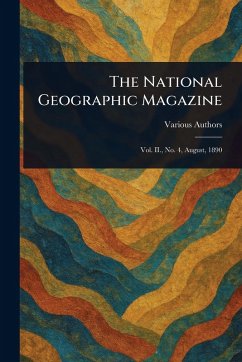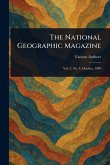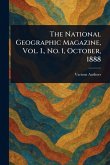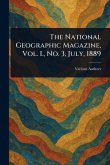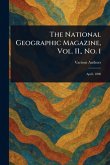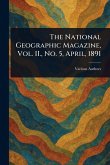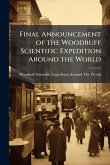Delve into the past with the August 1890 issue of "National Geographic Magazine, Vol. 2, No. 4," a fascinating window into late 19th-century geography, travel, and culture. This meticulously reproduced periodical offers a glimpse into the world as it was then understood and explored, showcasing the burgeoning field of geographical science. Explore articles and observations from various contributors, covering diverse regions and topics. Discover detailed maps and insightful commentary reflecting the spirit of exploration that defined the era. This volume provides a unique perspective on the history of geography, offering readers a valuable resource for understanding the evolution of our knowledge about the Earth. Perfect for those interested in travel, geographical studies, and the cultural landscape of the late 1800s, this edition of "National Geographic" is a timeless piece of historical documentation. This work has been selected by scholars as being culturally important, and is part of the knowledge base of civilization as we know it. This work is in the public domain in the United States of America, and possibly other nations. Within the United States, you may freely copy and distribute this work, as no entity (individual or corporate) has a copyright on the body of the work. Scholars believe, and we concur, that this work is important enough to be preserved, reproduced, and made generally available to the public. We appreciate your support of the preservation process, and thank you for being an important part of keeping this knowledge alive and relevant.
Bitte wählen Sie Ihr Anliegen aus.
Rechnungen
Retourenschein anfordern
Bestellstatus
Storno

